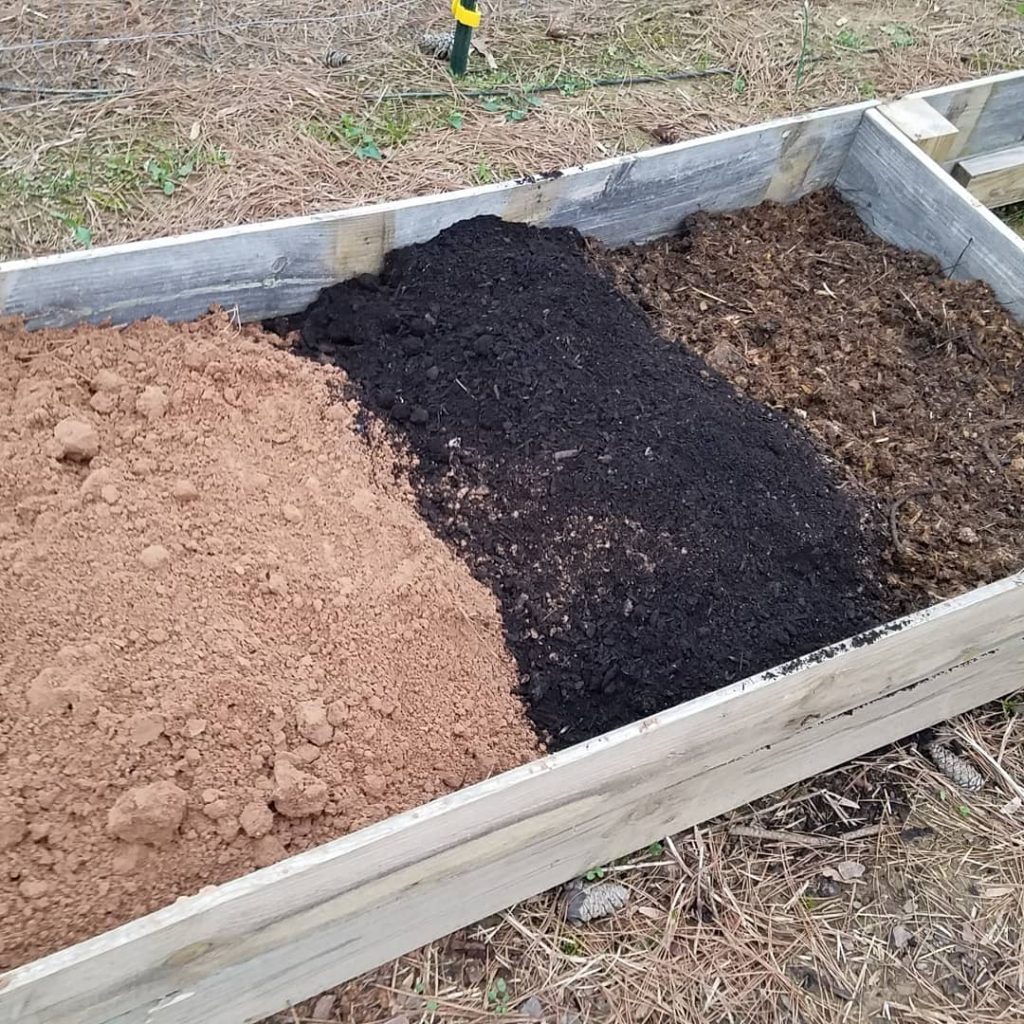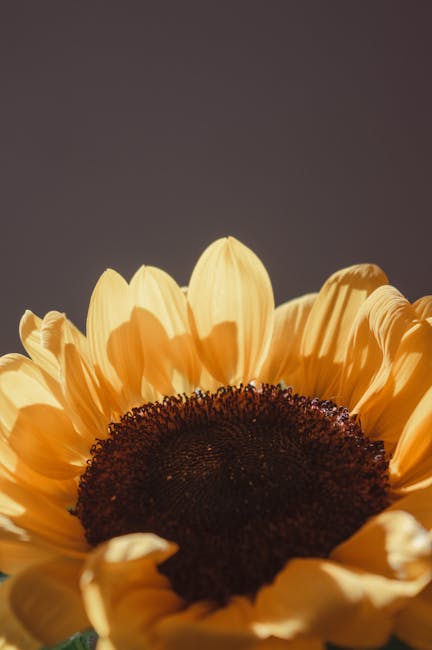Step into the world of organic gardening and unlock the secret to abundant, thriving vegetable beds with “.” In this guide, we will show you how to transform your garden into a haven of nutrient-rich soil that will nourish your plants and yield bountiful harvests. Get ready to dig in and discover the joy of growing your own delicious, healthy vegetables right in your backyard.
Table of Contents
- 1. Digging into the Basics: How to Lay the Groundwork for a Bountiful Vegetable Garden
- 2. Mulch Madness: Boosting Your Soil’s Nutrient Content with Organic Matter
- 3. Worms on a Mission: Harnessing the Power of Earthworms for Healthy Soil
- 4. Compost Magic: Turning Scraps into Black Gold for Your Garden
- 5. The Fruits of Your Labor: Reaping the Rewards of Nurturing Organic Soil for a Vibrant Vegetable Garden
- Q and A

1. Digging into the Basics: How to Lay the Groundwork for a Bountiful Vegetable Garden
Planting a thriving vegetable garden starts with the basics – good soil, proper watering, and ample sunlight. Before diving in, assess your space to ensure you have enough room for your veggies to flourish. Prepare the soil by digging in nutrient-rich compost and organic matter to create a fertile environment for your plants to grow. Remember, healthy soil means healthy plants!
When selecting your vegetables, consider what grows best in your region and climate. Choose a variety of vegetables that you and your family enjoy eating to make the most of your garden. Some popular options to consider are tomatoes, bell peppers, zucchini, and cucumbers. Don’t forget to space out your plants properly to give them room to spread out and receive adequate sunlight.
Watering is key to a successful vegetable garden. Make sure to water your plants regularly, especially during hot weather, to prevent them from drying out. Mulch around your plants to retain moisture in the soil and keep weeds at bay. With a little planning and care, you’ll be well on your way to enjoying a bountiful harvest from your very own vegetable garden!

2. Mulch Madness: Boosting Your Soil’s Nutrient Content with Organic Matter
Are you ready to take your gardening game to the next level? Enter the world of Mulch Madness! By incorporating organic matter into your soil, you can boost its nutrient content and give your plants the love they deserve. Say goodbye to lackluster soil and hello to a flourishing garden!
One of the key benefits of using organic matter as mulch is its ability to retain moisture in the soil. This means less watering for you and happier plants all around. Plus, organic mulches break down over time, releasing valuable nutrients back into the soil and creating a healthy ecosystem for your garden to thrive in.
So, how do you get started with Mulch Madness? It’s simple! Gather up some of your favorite organic materials such as leaves, grass clippings, or straw. Spread a generous layer around your plants, making sure to leave some space around the stems. Sit back, relax, and watch as your garden transforms into a nutrient-rich paradise!
3. Worms on a Mission: Harnessing the Power of Earthworms for Healthy Soil
Earthworms may seem like simple creatures, but don’t be fooled – these slimy heroes play a vital role in maintaining healthy soil. By burrowing through the earth, they help aerate the soil and improve its structure, making it easier for plants to grow and thrive. But their mission doesn’t stop there!
These wriggly wonders are also fantastic recyclers, breaking down organic matter like dead leaves and plant debris into nutrient-rich castings that enrich the soil. Talk about turning trash into treasure! With their voracious appetites and tireless work ethic, earthworms are like little composting machines, constantly churning out valuable nutrients for plants to absorb.
But wait, there’s more! Earthworms also play a crucial role in helping to control pests and diseases in the soil. By feeding on harmful pathogens and bacteria, they act as natural pest controllers, keeping the soil ecosystem in balance. Who knew these tiny creatures were such mighty warriors in the fight for healthy soil?
4. Compost Magic: Turning Scraps into Black Gold for Your Garden
Are you ready to turn your kitchen scraps into nutrient-rich gold for your garden? With a little compost magic, you can transform banana peels, coffee grounds, and eggshells into a black, crumbly substance that will work wonders for your plants.
Composting is like a fun science experiment in your backyard. All you need is a bin, some brown materials like leaves and straw, green materials like vegetable scraps and grass clippings, and a little bit of water. Mix it all together, give it some time, and watch as nature works its magic, breaking down the organic matter into a powerful fertilizer.
Not only will compost enrich your soil, but it also helps retain moisture, suppress plant diseases, and reduce the need for chemical fertilizers. Plus, it’s a sustainable way to reduce waste and give back to the earth. So roll up your sleeves, get your hands dirty, and start turning your food scraps into garden gold!
5. The Fruits of Your Labor: Reaping the Rewards of Nurturing Organic Soil for a Vibrant Vegetable Garden
Once you have diligently nurtured your organic soil, the rewards in your vegetable garden will be bountiful! Imagine walking through your garden and seeing vibrant, healthy plants that are thriving in the nutrient-rich environment you have created.
From plump tomatoes to crisp cucumbers, your garden will be overflowing with a variety of delicious and nutritious vegetables that you can enjoy all summer long. With the use of organic soil, you can be confident that the fruits of your labor are not only tasty but also free from harmful chemicals and pesticides.
As you harvest your garden bounty, take a moment to savor the flavors of your homegrown vegetables. Whether you are enjoying a fresh salad or cooking up a flavorful stir-fry, you can taste the love and care that went into nurturing your organic soil. Your efforts have truly paid off, and your tastebuds will thank you for creating such a vibrant and thriving vegetable garden!
Q and A
Q: What is the key to growing a successful vegetable garden?
A: The key is to start with good soil!
Q: Why is organic soil important for your garden?
A: Organic soil is important because it is full of nutrients that will help your plants thrive.
Q: How can I cultivate lush organic soil at home?
A: You can cultivate lush organic soil by composting kitchen scraps, mixing in organic fertilizer, and using natural amendments.
Q: What are the benefits of using organic soil in my vegetable garden?
A: The benefits of using organic soil include healthier plants, better tasting vegetables, and a more environmentally-friendly approach to gardening.
Q: Can I save money by creating my own organic soil?
A: Absolutely! By creating your own organic soil, you can save money on expensive store-bought soil and fertilizers.
Q: How often should I amend my soil for optimal results?
A: It’s recommended to amend your soil at least once a year, preferably in the spring before planting your vegetable garden.
Q: Are there any easy tips for maintaining lush organic soil throughout the growing season?
A: Some easy tips for maintaining lush organic soil include mulching, rotating crops, and testing your soil pH regularly.
Q: What can I do with leftover organic material from my garden?
A: You can create more compost, mulch, or even share with a neighbor who is also passionate about organic gardening!
As you embark on your journey to cultivate lush organic soil for your vegetable garden, remember that every seed you sow is a small act of love for the earth. By nourishing the soil, you are not only growing vibrant, delicious produce but also contributing to a healthier planet. So, get your hands dirty, embrace the process, and watch as your garden blooms with abundance. Happy gardening!


